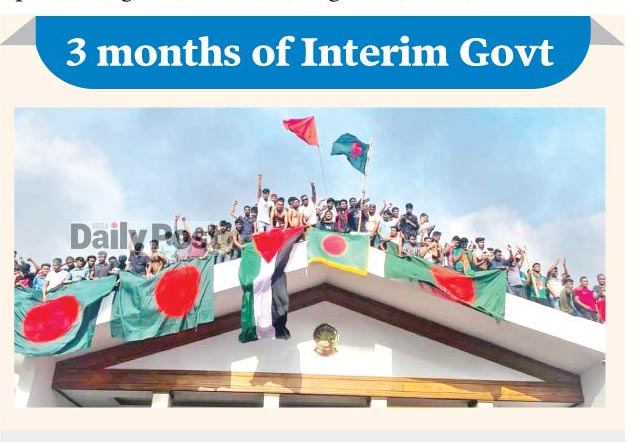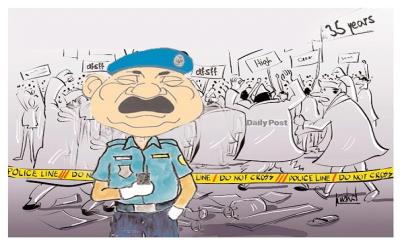-The work of our government to adopt the election-oriented process has started." You can say that the journey towards elections has started.
Dr Asif Nazrul, Advisor
It is three months since Awani League’s (AL) dictatorship ended in an anti-discrimination student uprising. After Sheikh Hasina fled from the country on August 5, a new chapter began with the expectation of the journey of forming a liberal, democratic, non-discriminatory, non-communal Bangladesh through state reforms on the path of democracy. On August 8, the interim government formed under the leadership of Nobel-winning economist Professor Dr. Muhammad Yunus is about to complete three months. In this three-month assessment, economists say, some order has returned to the fragile macro-economy. And politicians have expressed unease at the lack of clear steps to reform and yet hold early elections.
Apart from the chaos in the financial sector, this government has to face various challenges, including the demands and movements of different organizations, bringing the police administration back to work, public belief and order, constitutional reforms, unemployment issues, mob justice, conspiracies against govt, internal clash of power, communal problems, CHT troubles and Hindu problem and many more. State reform is considered to be the main task of the interim government in anticipation of the student uprising, but in the third month it has come under some applaud and criticism.
The Chief Adviser has announced 11 reform commissions in two phases on 11 issues, the notification for formation of five commissions has not yet been issued. The longer the elections are delayed, the more the defeated forces may rise up - fearing that BNP and the anti-fascist movement partner parties have stepped up their efforts to demand early elections. Former Prime Minister Sheikh Hasina's resignation President Md Sahabuddin's comments and the anti-discrimination student movement demanded his resignation, but several political parties, including the BNP, expressed dissent.
However, according to the information of the finance department of the government, the newly formed and exceptional government has to start working with the debt burden of Tk 18 lakh 36 thousand crore left by the previous government. Out of this, the amount of accumulated foreign debt is Tk 6 thousand 790 billion dollars. The burden of paying the principal and interest of this huge debt is now on the shoulders of the current government.
Despite being in the hazy situation there are some positive incidents too. During the July to October period of this fiscal year, remittance earning stood at $8.93 billion, up from $6.87 billion at the same period of last fiscal year, central bank data showed. Interim government pays of $1.37 billion in import bills of July and August though ACU. The ACU is a Tehran-based organization for settling payments among eight countries -- India, Bangladesh, Bhutan, Iran, the Maldives, Myanmar, Nepal, Pakistan, and Sri Lanka. Under the ACU, Bangladesh clears import bills every two months. On the top of that, NBR cuts import duty on various products including rice and wheat from 63 percent to 25 percent. Government freed duty on private solar energy company to strengthen the rise of solar system power commercially in Bangladesh.
Analysts of the banking sector said that confidence in the bank started to return after the new governor took over. This is reflected in the remittances sent by expatriates. Remittance flow exceeded $200 million in August itself. Reserves begin to consolidate. Loan assistance was sought from the IMF-World Bank. Despite the huge amount of debt taken during the previous government, the organizations responded to the positive actions of the government and assured to support the reforms. The governor stopped freely selling dollars from the reserves. Reserves, which had been on the decline during the previous government, have risen to around $20 billion. The reserve is expected to increase further in the future.
On September 11, the central bank formed a six-member task force to reform the banking sector. This task force mainly examines the current financial situation of the banking sector, assessment of bad assets and major risks, review of financial indicators of weak banks, assessment of actual credit status, assessment of provision shortfall, review of liquidity situation, assessment of net capital, assessment of real value of assets, assessment of the respective banks. Conduct activities related to separation of evil assets.
After the end of Sheikh Hasina's dictatorship, the information of widespread corruption and looting under state patronage began to be exposed to the countrymen. In an interview recently given to the Financial Times, Bangladesh Bank Governor Ahsan H Mansoor said that businessmen close to former Prime Minister Sheikh Hasina have removed money equivalent to 17 billion dollars from the bank. Last Saturday, TIB Executive Director Iftekharuzzaman gave the same information in a press conference.
Apart from this, referring to the information of the Planning Commission, this information has been published in the media that Tk 17 lakh 34 thousand crore has been spent in the name of development in the 15 years of Sheikh Hasina's government, of which 40 percent has been looted.
However, Former Director General of Bangladesh Institute of Development Research (BIDS) Dr Mostafa K Mujeri said that the steps taken by the interim government are positive to stimulate the economy, but not enough. There has been some order in industries, remittances have increased, this is a good thing. However, to reduce inflation, it is not only necessary to increase the policy interest rate, but also to pay more attention to the market management. To make the economy more active, steps must be taken to increase public and private investment. Small and medium industries should be mobilized. Agricultural production should be accelerated. Then the employment will increase, the economy will be dynamic.
There are some praise worthy and critical works of interim government (IG) and students of anti-discrimination movement such as banning Bangladesh Chhtra League (BCL), selling daily necessary products by students at affordable price in market to people, cancelling accreditation cards of some fascist enablers journalists, making the airport expatriate friendly, banning the anti-environmental polythene and its production and uses. IG bears the medical expenses of the injured students and protestors of July movement, supporting the forcefully disappeared people and most importantly granting access to information, and ensuring freedom of speech. There are some criticisms too such as the interim governments are slow to take decision, and unclear to its vision and ruling time and can’t install law and order appropriately in every corner of the country.
The stance of student movement against Jatiya Party also did not get support from BNP and their like-minded parties. BNP informed that they are not in favor of banning any political party. Political parties' support as well as criticism of the interim government has been noticed recently. Many feel that the classroom is still not completely normal. Apart from this, among the notable events of the last month were the denial of a bench to 12 judges accused of acting as accomplices of the fascist Hasina government and the final cancellation of the Sixteenth Amendment of the Constitution by the Supreme Court. This settled a contentious issue regarding the independence of the judiciary.
BNP’s various leader are forcing the interim government to clear their stance on their ruling term and election.
On the other hand, amid the demands of political parties for quick elections, on October 31, the Electoral Commission was formed to reorganize the inquiry committee. Prior to this, the interim government's legal advisor Dr Asif Nazrul said, "The work of our government to adopt the election-oriented process has started." You can say that the journey towards elections has started.
In the third month of the interim government, the activities of the armed forces in maintaining law and order have brought a lot of relief to the public. However, there is discomfort with the high prices of daily necessities.
Motiur Rahman Akand, secretary of the Central Information Department of Bangladesh Jamaat-e-Islami Spokesperson Party, said, "Fascists have left the country through the movement of students and people." Hope this spirit of revolution will continue in the future. However, the government has not yet completed the preparations for early elections. Hopefully, the government will hold elections soon after completing the reforms. The government came to power through an unusual situation. The government is working to free country from corruption and partisanship at all levels of the country including administration, judiciary. The government is working to restore the normal situation in the country. Reforms are being brought in the banking sector. These aspects are positive.’
There is going so much tension between many political parties. Everyone is focused on their share of power and hegemony.
ZH






